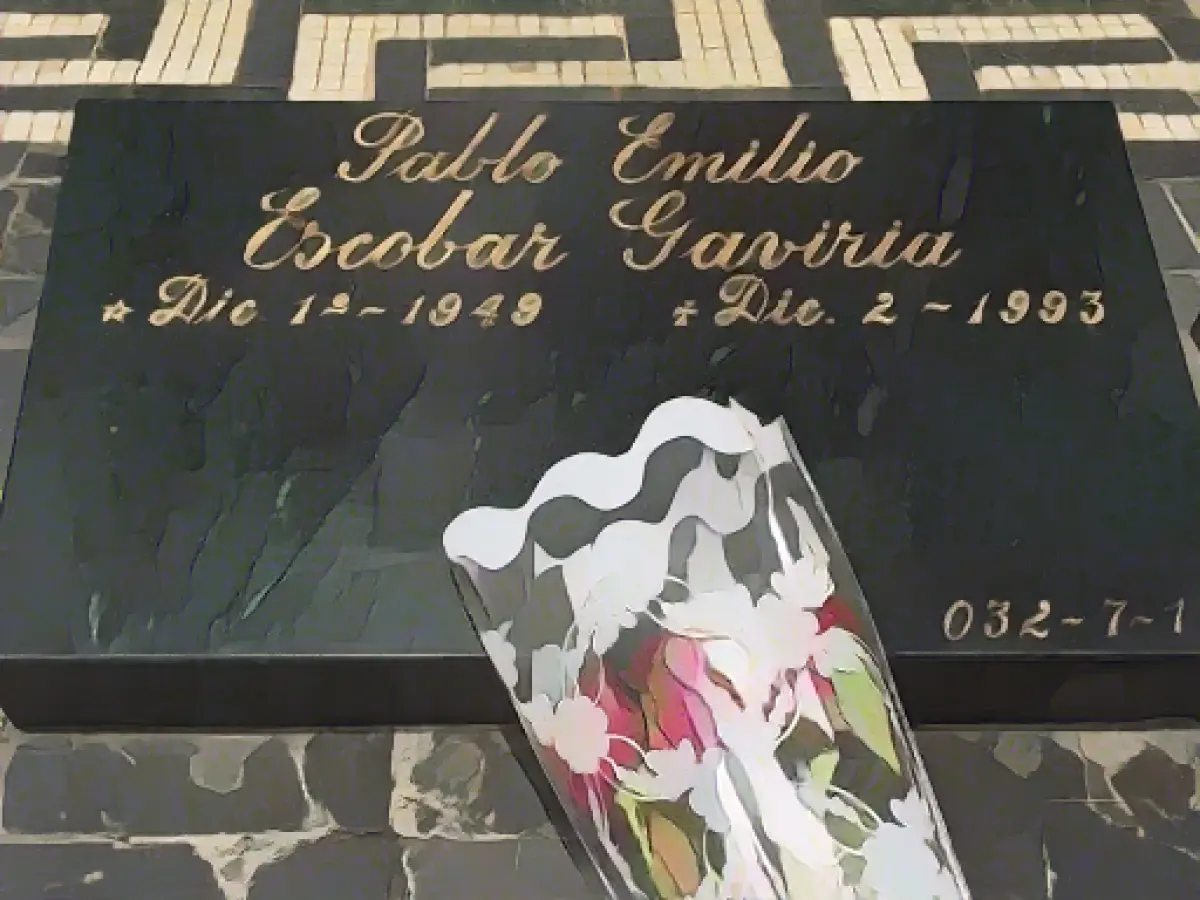Pablo Escobar's Demise and the Shift in Colombia's Drug Trafficking Landscape
Decades have passed since the infamous, billionaire drug lord, Pablo Escobar, met his end in 1993. Known as the "King of Cocaine," Escobar revolutionized the international drug trade, starred in a deadly war against the Colombian government, and earned an estimated fortune of over five billion dollars. His demise may have marked the end of large, powerful drug cartels, but it didn't put an end to drug trafficking in Colombia.
The Decline of Visible Cartels
The drug trade in Colombia has changed significantly since Escobar's reign. Óscar Naranjo, a retired Colombian National Police director, explains that, "there are no longer any large, visible, and powerful drug cartels that are commanded from above and whose leaders are known."
The new crop of criminals isn't as flashy or prominent as Escobar and his organization, the Medellín cartel. They understand all too well the consequences of showing off their wealth and power, thus choosing to operate in smaller, less visible groups.
Escobar's Legacy and the Worship of a Murderer
Sympathy for Escobar has grown with each passing year, and he is now considered a hero by many, especially younger generations who weren't alive during his reign. Naranjo, who led the manhunt team that caught and killed Escobar, isn't swayed by this narrative. "He is worshiped today by young people who were not born during the time of violence. They believe he was a god or a kind of Colombian Robin Hood, but that is absolutely wrong. In reality, he was a murderer and a madman."
Escobar's legacy leaves a bitter taste for Naranjo, as he sees a missed opportunity for justice and the hope that such a brutal figure will no longer be idolized.
Developments in the Drug Trade After Escobar's Death
The drug trade has undergone significant changes following Escobar's demise, as new players come onto the scene and cartels fragment into smaller, more dispersed groups:
- Fragmentation: Drug trafficking is no longer managed hierarchically with a few key players in control. Instead, the trade operates through a highly fragmented underworld of various international mafia groups, including Mexican, European, African, and North African cartels.
- Violence and Power Struggles: There are fewer cases of extreme violence, as new players opt for less conspicuous methods. However, this doesn't mean that drug trafficking is free of violence or power struggles.
What About Escobar's Heirs?
Escobar's family fortune, once estimated to be worth over five billion dollars, has been largely dismantled. Today, his former home still stands, albeit weakened and damaged due to tourists flocking to the property as a pilgrimage site. The worship of Pablo Escobar as a legend and hero continues to inspire some, but Naranjo remains steadfast in his belief that Escobar was nothing more than a ruthless killer.
Coca Production and the Global Drug Market
The production of coca cultivation has increased exponentially. According to data from the United Nations, between 600 and 900 tons of coca were produced in the Andean region in 2015. Today, an estimated 2,500 tons are produced, creating a lucrative market for drug traffickers.
The global cocaine market is highly complex, requiring the coordination of cultivation in Colombia, the Mediterranean, and other producing regions, as well as the distribution of the drug to various parts of the world. As a result, it's challenging for authorities to track and intercept shipments.
The Debate on Legalization
Some argue that the legalization of coca production is an effective solution to dismantle the illicit drug trade and provide economic alternatives for local farmers. Current Colombian President Gustavo Petro has proposed legalizing coca cultivation. However, critics argue that legalization could lead to the reemergence of illicit markets and the strengthening of armed groups in control of drug-producing regions.
Conclusion
Twenty-nine years after Escobar's death, Colombia's drug trafficking landscape remains as intricate and unpredictable as ever. While the large, visible drug cartels are gone, their legacy continues to influence the drug trade and the broader Colombian society. As the global cocaine market becomes increasingly complex, it's vital for authorities to remain vigilant in their efforts to combat drug trafficking.
Sources:
- Óscar Naranjo, retired Colombian National Police director, interviewed by the German Press Agency (DPA) (2013)
- "Pablo Escobar is Dead and Colombia's Drugs Are Surviving," BBC News (December 4, 1993)
- "The End of Escobar's Empire: Colombia's Drug War after the Medellín Cartel," Insight Crime (December 2, 2017)
- "Drugs and Violence in Colombia," Stratfor (April 2, 2009)
- "Colombia's Drug War: A Long and Difficult Road," Columbia Insights (December 2017)








